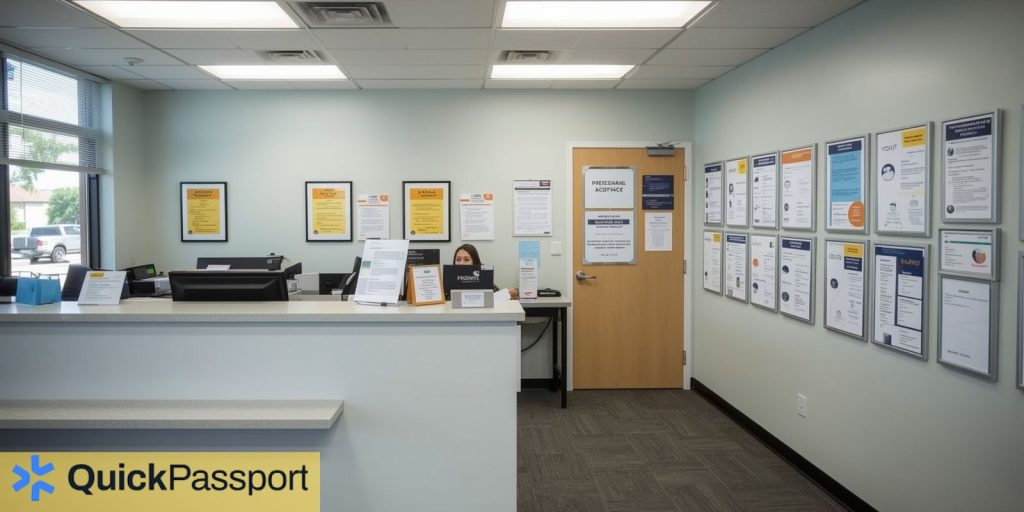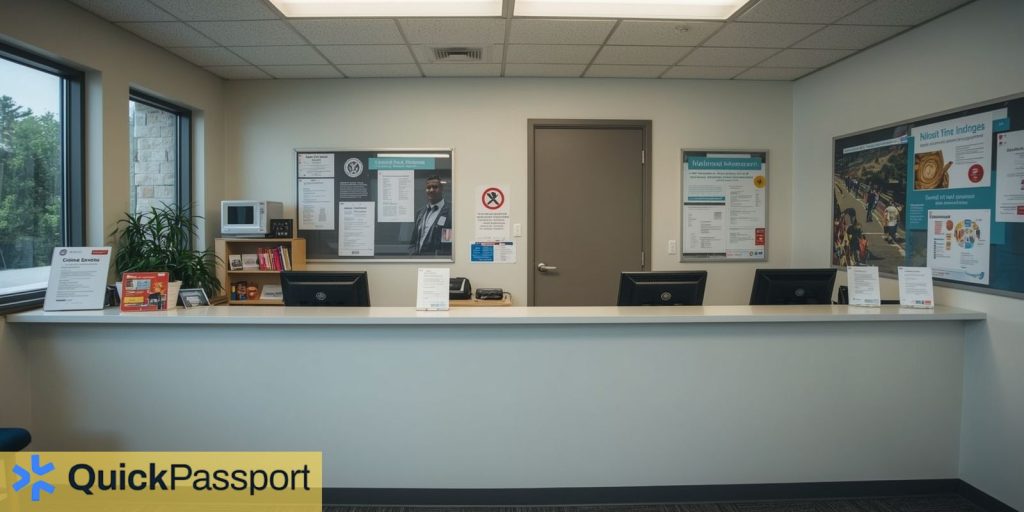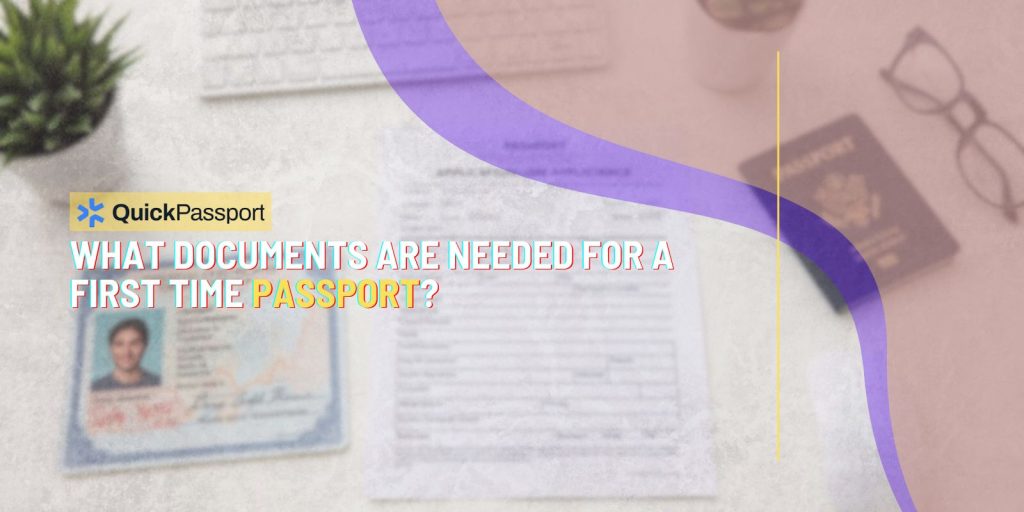Applying for your first passport can feel overwhelming, especially when you’re unsure about what documents you need to gather. Whether you’re planning an international vacation, preparing for a business trip, or simply want to have proper identification ready for future travel, understanding the specific documentation requirements is crucial for a smooth application process.
The process of obtaining your first passport involves more than just filling out an application form. You’ll need to provide proof of your U.S. citizenship, establish your identity, and follow specific procedures that differ from passport renewals. Many first-time applicants underestimate the preparation required, leading to delays, rejected applications, or multiple trips to the passport office.
Getting your documentation right the first time saves both time and money. Incomplete applications can result in processing delays of several weeks or even months, potentially disrupting your travel plans. Additionally, if you submit incorrect or insufficient documentation, you may need to pay additional fees to resubmit your application.
The good news is that once you understand what documents are needed for a first time passport, the process becomes much more manageable. The U.S. State Department has specific requirements that apply to all first-time adult applicants, and knowing these requirements in advance allows you to gather everything you need before visiting a passport acceptance facility.
This comprehensive guide will walk you through every document you need, explain why each one is required, and provide tips for ensuring your application is processed quickly and efficiently. We’ll also cover common mistakes to avoid and special circumstances that might affect your documentation requirements.
Key Takeaways
- Proof of U.S. Citizenship: You must provide an original or certified copy of your birth certificate issued by the city, county, or state, or other acceptable citizenship documents such as a naturalization certificate or previous U.S. passport.
- Photo Identification: A valid driver’s license, state-issued ID card, military ID, or other government-issued photo identification is required to verify your identity during the application process.
- Passport Photo Requirements: You need one recent passport photo that meets specific size, background, and quality requirements set by the U.S. State Department.
- Completed Application Form: Form DS-11 must be filled out completely but not signed until you’re in the presence of an authorized passport acceptance agent.
- Application Fees: First-time passport applicants must pay both the passport execution fee and the passport book fee, with additional costs for expedited processing if needed.
- In-Person Application Required: Unlike passport renewals, first-time applicants must apply in person at an authorized passport acceptance facility or passport agency.
- Processing Time Considerations: Standard processing takes 6-8 weeks, while expedited service takes 2-3 weeks, so plan accordingly based on your travel timeline.
- Document Originals vs. Copies: Most citizenship and identity documents must be original or certified copies; photocopies are generally not acceptable for first-time applications.
Overview of First-Time Passport Documentation
The documentation requirements for first-time passport applicants are designed to establish two fundamental things: your U.S. citizenship and your identity. Unlike passport renewals, which can often be completed by mail with fewer requirements, first-time applications require more comprehensive documentation and must be submitted in person.

Understanding the difference between primary and supporting documents is essential. Primary documents serve as your main proof of citizenship and identity, while supporting documents may be required in specific circumstances or when primary documents are unavailable. The U.S. State Department maintains strict standards for document authenticity to prevent fraud and ensure the security of the passport issuance process.
The documents needed for first passport applications fall into several categories. Citizenship documents prove you’re a U.S. citizen by birth or naturalization. Identity documents verify that you are who you claim to be. The passport application form provides the government with your personal information and travel document request. A passport photo ensures your physical appearance can be verified when you travel.
Timing is crucial when gathering these documents. Some documents, like birth certificates, may need to be ordered from government agencies if you don’t have them readily available. This process can take several weeks, so it’s important to start gathering your documentation well before you need your passport. Additionally, some documents have expiration dates or age requirements that could affect their acceptability.
Proof of U.S. Citizenship Documents
Establishing your U.S. citizenship is the most critical component of your first-time passport application. The type of citizenship document you need depends on how you acquired your citizenship – whether by birth in the United States, birth abroad to U.S. citizen parents, or through naturalization.
For individuals born in the United States, a certified birth certificate is the most common and widely accepted form of citizenship proof. This must be an original or certified copy issued by the city, county, or state where you were born. Hospital birth certificates, baptismal certificates, and other religious documents are not acceptable. The birth certificate must show your full name, date of birth, place of birth, and your parents’ names.
If you were born abroad to U.S. citizen parents, you’ll need different documentation. A Consular Report of Birth Abroad (Form FS-240) or Certification of Birth Abroad (Form DS-1350) serves as proof of citizenship for those born outside the United States to American parents. These documents are issued by U.S. consulates and embassies abroad and are considered primary evidence of citizenship.
Naturalized citizens must provide their Certificate of Naturalization as proof of citizenship. This document is issued by U.S. Citizenship and Immigration Services (USCIS) upon completion of the naturalization process. The certificate must be original or a certified copy, and photocopies are not acceptable.
In some cases, alternative citizenship documents may be accepted. These include a previous U.S. passport (even if expired), a Certificate of Citizenship issued to individuals who derived or acquired citizenship through their parents, or military records showing birth in the United States. However, these alternative documents may require additional verification or processing time.
Photo Identification Requirements
Valid photo identification is essential for verifying your identity during the passport application process. The identification document you present must be current, government-issued, and include your photograph, signature, and physical description or identifying information.
A valid driver’s license is the most commonly used form of identification for passport applications. The license must be current and not expired, and it should clearly show your photograph, full name, and signature. Enhanced driver’s licenses, which are available in some states, are also acceptable and provide additional security features.
State-issued identification cards serve as an excellent alternative for those who don’t have a driver’s license. These cards are issued by the same state agencies that handle driver’s licenses and meet the same identification standards required for passport applications. They’re particularly useful for individuals who don’t drive but need official photo identification.
Military identification cards are accepted from all branches of the U.S. armed forces, including active duty, reserve, and retired military personnel. These IDs are considered highly secure and are readily accepted at passport acceptance facilities. Military dependents’ ID cards may also be acceptable in certain circumstances.
Other acceptable forms of photo identification include federal government employee IDs, tribal identification cards issued by recognized Native American tribes, and naturalization certificates that include a photograph. However, some of these alternative forms of ID may require additional verification or may not be accepted at all passport acceptance facilities.
If you don’t have acceptable photo identification, you can still apply for a passport by bringing someone who can vouch for your identity. This person must have known you personally for at least two years, be a U.S. citizen, present acceptable identification themselves, and be available to sign an affidavit confirming your identity. This process, known as “identifying witness,” adds complexity to your application but provides an option when standard identification isn’t available.
Passport Application Form and Photo Requirements
Form DS-11, the Application for a U.S. Passport, is the official document that initiates your passport request. This form must be completed accurately and thoroughly, as any errors or omissions can delay processing or result in application rejection. The form requests personal information including your full name, date and place of birth, Social Security number, and contact information.

When completing Form DS-11, use black ink and print clearly in all capital letters. Avoid abbreviations except where specifically indicated, and ensure all information matches exactly what appears on your supporting documents. Pay particular attention to name spelling, as discrepancies between your application and supporting documents can cause significant delays.
One critical aspect of Form DS-11 is that you must not sign it until you’re in the presence of an authorized passport acceptance agent. Signing the form in advance will invalidate your application and require you to complete a new form. The acceptance agent will witness your signature as part of the identity verification process.
Your passport photo is equally important and must meet specific requirements established by the U.S. State Department. The photo must be 2×2 inches in size, taken within the last six months, and show a clear, front-facing view of your face. The background must be white or off-white, and you should have a neutral facial expression with both eyes open.
Professional passport photo services are available at many locations, including post offices, pharmacies, and dedicated passport service providers like QuickPassport – Seattle. These services ensure your photo meets all technical requirements, including proper lighting, composition, and print quality. While it’s possible to take your own passport photo, using professional services reduces the risk of rejection due to photo quality issues.
Clothing and accessories in your passport photo should be kept simple. Avoid uniforms, camouflage, or clothing that blends with the background. Glasses are generally acceptable if they don’t create glare or obscure your eyes, but many photographers recommend removing them to avoid potential issues. Head coverings are only permitted for religious purposes and must not obscure your facial features.
Application Fees and Processing Options
Understanding the fee structure for first-time passport applications helps you budget appropriately and choose the processing option that best meets your timeline. First-time applicants face different fees than those renewing existing passports, and additional services come with extra costs.
The standard passport book fee for adults (ages 16 and older) covers the cost of producing and issuing your passport. This fee is paid directly to the U.S. State Department and is separate from other charges you may encounter during the application process. Passport books are required for all international air travel and most international travel by land or sea.
In addition to the passport book fee, first-time applicants must pay an execution fee. This fee covers the cost of processing your application, verifying your documents, and witnessing your signature. The execution fee is paid to the passport acceptance facility where you submit your application, not to the State Department.
Passport cards are available as an alternative or addition to passport books. These wallet-sized cards are less expensive than passport books but have limited use – they’re only valid for land and sea travel to Canada, Mexico, the Caribbean, and Bermuda. They cannot be used for international air travel. Many applicants choose to get both a passport book and card for maximum flexibility.
Expedited processing is available for an additional fee when you need your passport quickly. This service reduces processing time from the standard 6-8 weeks to 2-3 weeks. Expedited processing can be requested when you submit your application or added later by contacting the National Passport Information Center, though adding expedited service after submission may result in additional delays.
For urgent travel needs, the U.S. State Department operates regional passport agencies that can issue passports in as little as one business day. However, these agencies require appointments and proof of imminent international travel, such as airline tickets for travel within 14 days. QuickPassport – Seattle can help you determine if you qualify for emergency passport services and assist with the appointment scheduling process.
Special Circumstances and Additional Documentation
Certain situations require additional documentation beyond the standard requirements for first-time passport applicants. Understanding these special circumstances helps ensure you bring all necessary documents and avoid delays in processing your application.
Name changes since birth require additional documentation to establish the connection between your current legal name and the name on your birth certificate. Marriage certificates, divorce decrees, or court-ordered name change documents must be provided as original or certified copies. The name change documentation must show a clear progression from your birth name to your current legal name.
Adopted individuals may need to provide additional documentation depending on when the adoption was finalized and what documents are available. An amended birth certificate showing the adoptive parents’ names is typically acceptable, but in some cases, adoption decrees or other court documents may be required. If you were adopted and your birth certificate doesn’t reflect your adoptive parents, consult with a passport specialist about your specific documentation needs.
Individuals born in U.S. territories such as Puerto Rico, U.S. Virgin Islands, Guam, American Samoa, or the Northern Mariana Islands have specific documentation requirements. Birth certificates from these territories are generally acceptable, but certain time periods or issuing authorities may require additional verification. Recent changes in documentation requirements for some territories make it important to verify current standards before applying.
Parents applying for passports for minor children face additional requirements designed to prevent child abduction and ensure proper parental consent. Both parents typically must appear in person with the child, or the applying parent must provide notarized consent from the non-applying parent. Single parents may need to provide additional documentation such as sole custody orders or death certificates.
Military personnel and their families may have access to special passport services through military installations. However, they can also use civilian passport acceptance facilities and must meet the same documentation requirements as other applicants. Military members should be aware that some overseas assignments may require specific passport endorsements or additional documentation.
Frequently Asked Questions
Can I use a photocopy of my birth certificate for my passport application?
No, photocopies of birth certificates are not acceptable for first-time passport applications. You must provide an original birth certificate or a certified copy issued by the vital records office in the city, county, or state where you were born.
How long does it take to get a first-time passport?
Standard processing time for first-time passport applications is 6-8 weeks from the time your application is received. Expedited processing reduces this to 2-3 weeks for an additional fee. During peak travel seasons, processing times may be longer.
What if I don’t have a driver’s license or state ID?
If you don’t have acceptable photo identification, you can bring an identifying witness who has known you personally for at least two years. This person must be a U.S. citizen, present their own acceptable ID, and sign an affidavit confirming your identity.
Can I apply for a passport if my birth certificate has errors?
If your birth certificate contains errors, you’ll need to correct them with the issuing vital records office before applying for a passport. The passport application must match the information on your supporting documents exactly.
Do I need both a passport book and passport card?
A passport book is required for all international air travel. A passport card can only be used for land and sea travel to Canada, Mexico, the Caribbean, and Bermuda. Most travelers choose the passport book for maximum flexibility, but you can apply for both if desired.
What happens if my passport application is rejected?
If your application is rejected due to insufficient or incorrect documentation, you’ll receive a letter explaining the reason for rejection. You can resubmit your application with the correct documents, but you may need to pay certain fees again.
Can I track the status of my passport application?
Yes, you can check your application status online using the U.S. State Department’s passport status system. You’ll need your last name, date of birth, and the last four digits of your Social Security number to access the tracking system.
Where can I apply for my first passport in Seattle?
Seattle has numerous passport acceptance facilities including post offices, libraries, and specialized services like QuickPassport – Seattle. These facilities can help ensure your application is complete and properly submitted to avoid delays.
Conclusion
Successfully obtaining your first passport requires careful preparation and attention to detail, but understanding what documents are needed for a first time passport makes the process much more manageable. By gathering the required proof of citizenship, valid photo identification, completed application form, and proper passport photo before your appointment, you can ensure a smooth application experience.
Remember that first-time passport applications must be submitted in person at an authorized acceptance facility, and processing takes several weeks even with expedited service. Starting the process early gives you time to obtain any missing documents and avoid the stress of last-minute travel preparation.
The investment in proper documentation pays off with years of convenient international travel. A U.S. passport is one of the most valuable documents you can possess, opening doors to global opportunities for business, education, and leisure travel. Taking the time to get your first passport application right ensures you’ll have this important document when you need it most.
For residents of the Seattle area, QuickPassport – Seattle provides expert assistance with passport applications, helping ensure your documentation is complete and your application is processed efficiently. Professional passport services can save time and reduce the risk of application errors that could delay your travel plans.






